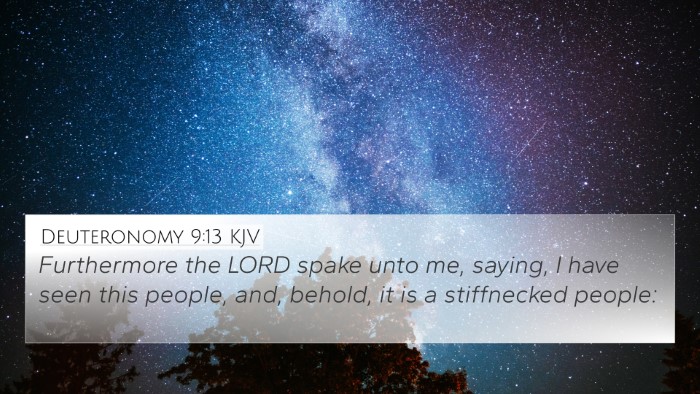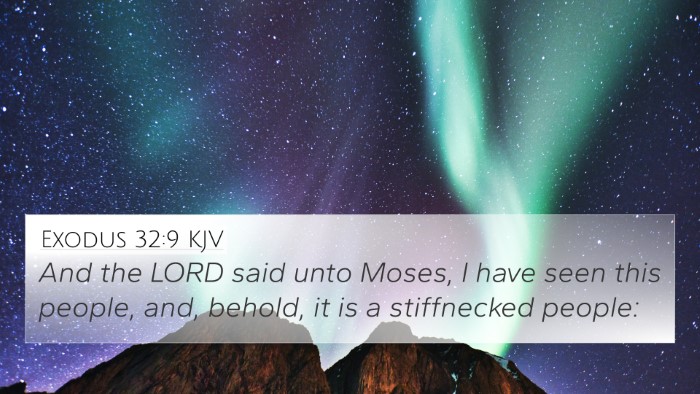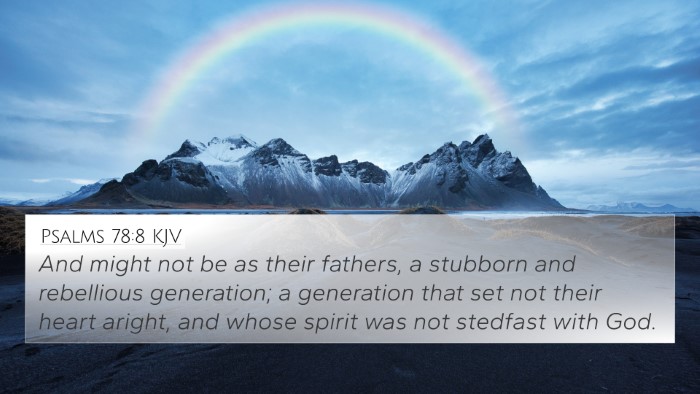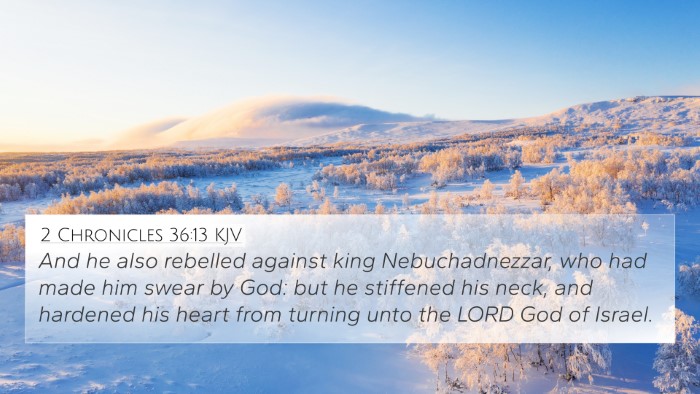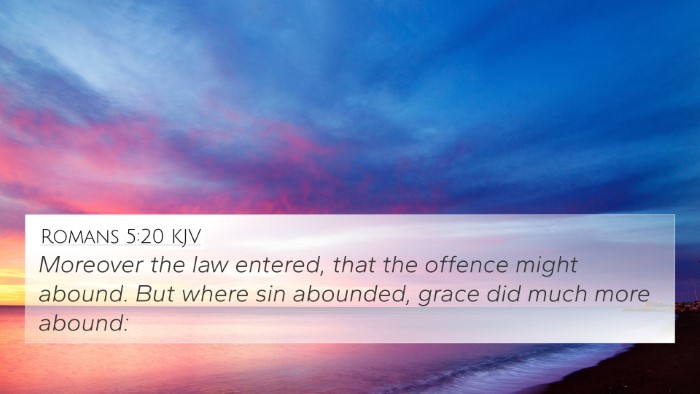Understanding Deuteronomy 9:6
Deuteronomy 9:6 reads, "Know therefore that the Lord your God is not giving you this good land to possess because of your righteousness, for you are a stiff-necked people." This verse encapsulates a profound message regarding God’s grace and Israel's unworthiness. The following analysis draws insights from several public domain commentaries, including those by Matthew Henry, Albert Barnes, and Adam Clarke.
Key Themes
- God’s Sovereignty: The verse emphasizes that the land promised to Israel is not a reward for their righteousness, but a demonstration of God's grace.
- The Stiff-Necked Nature of Israel: The term "stiff-necked" indicates the stubbornness and rebelliousness of the Israelites against God’s commands.
- Human Unworthiness: This verse serves as a reminder of the intrinsic unworthiness of God’s people, highlighting the importance of humility before God.
Commentary Insights
Matthew Henry: He emphasizes that the Israelites needed to recognize their own failings to better understand God's mercy towards them. Their possession of the land is not due to their merits, but because of God’s covenant promises.
Albert Barnes: Barnes points out that the stiff-necked attitude of the Israelites reflects their repeated disobedience and rebellion throughout their history. He notes that God’s grace is often given in spite of human unworthiness.
Adam Clarke: Clarke discusses the historical context of this verse and hints at the larger narrative of the Israelites’ journey. He stresses that understanding their unworthiness is crucial for the people to maintain a proper relationship with God.
Bible Cross-References
The following Bible verses are relevant to Deuteronomy 9:6 and provide deeper insights into its themes:
- Exodus 32:9-10: Moses intercedes for the stiff-necked people after witnessing their rebellion.
- Deuteronomy 7:7-8: Reiterates God's choice of Israel not because of their greatness but out of His love and faithfulness.
- Psalm 78:40: Describes Israel's continual rebellion against God despite His numerous acts of deliverance.
- Jeremiah 2:5: Questions what sin the ancestors of Israel found in God, highlighting their departure from God's commands.
- Romans 3:10-12: Paul cites the unworthiness of all humanity, echoing the theme of unearned righteousness.
- Titus 3:5: This New Testament verse reinforces the idea of salvation not being based on our deeds but God's mercy.
- 1 Corinthians 1:27-29: Paul explains that God chose what is weak in the world to shame the strong, an echo of Israel's unworthiness.
Links Between the Old and New Testament
There are significant connections between this verse and teachings in the New Testament. For example:
- Ephesians 2:8-9: Similar themes of grace and not depending on works are emphasized, reinforcing the foundational truth of unearned salvation.
- Matthew 9:13: Jesus quoted the need for mercy, aligning His ministry with the divine mercy exhibited towards Israel.
Thematic Bible Verse Connections
Deuteronomy 9:6 is relevant in various themes throughout the scripture, such as:
- Grace vs. Works: This theme is prevalent in Paul’s Epistles, particularly in Romans and Galatians.
- Provision and Sovereignty: God's provision of the promised land is anticipatory of His ultimate provision of grace through Christ.
In Conclusion
Deuteronomy 9:6 serves as a vital reminder of God's unmerited favor while confronting human unworthiness. Through structured cross-referencing and comparative analysis of scripture, one can appreciate the link between God's grace shown to Israel and the grace offered universally through Jesus Christ. These connections provide rich grounds for further Bible study, emphasizing the themes of mercy, rebellion, and divine sovereignty.



